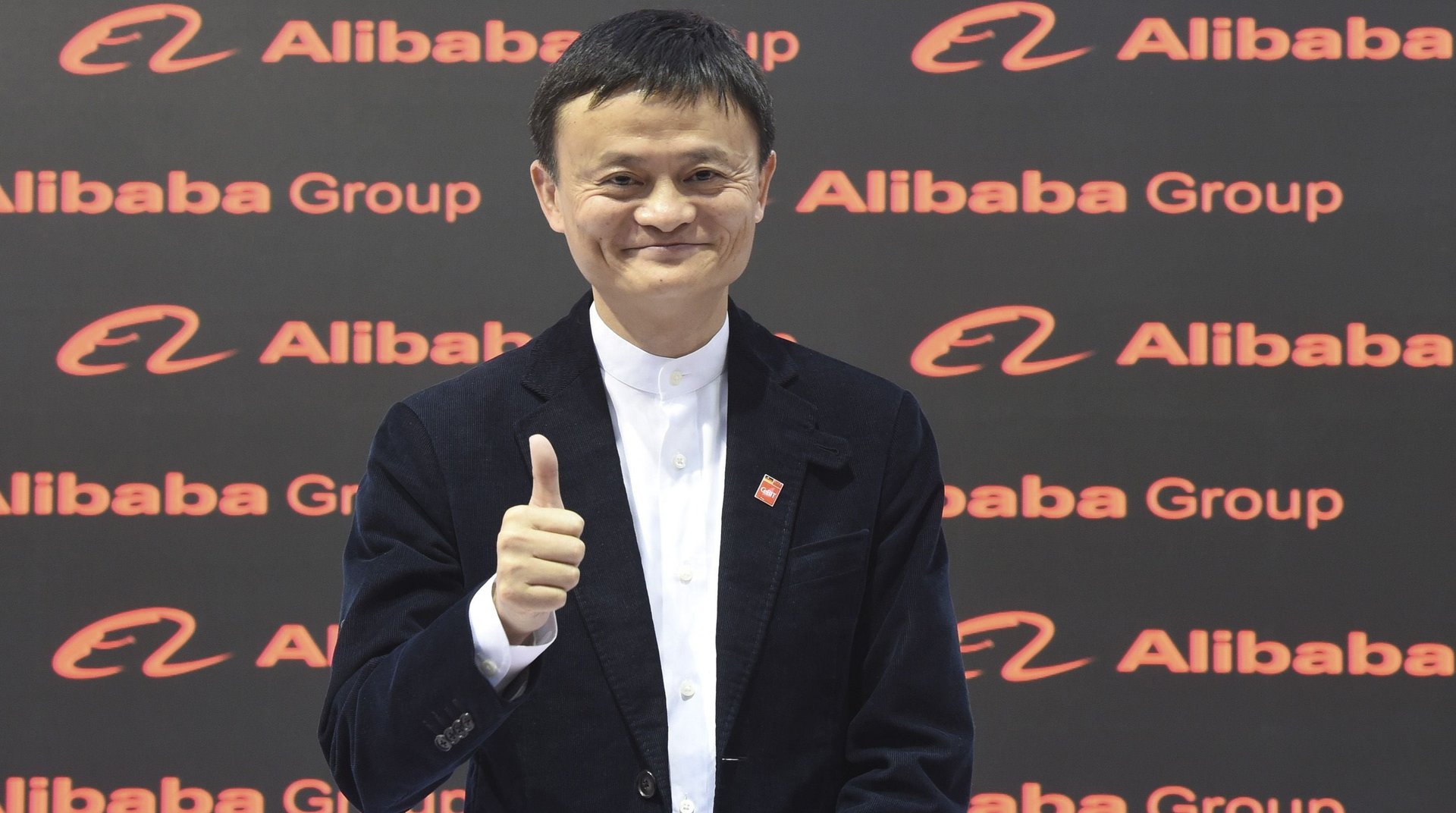Is Jack Ma running for US president?
Earlier today (June 9), Jack Ma, founder and chairman of Alibaba, addressed a Waldorf Astoria grand ballroom’s worth of well-to-do New Yorkers. His lunchtime speech wasn’t the tech fantasia of “digital revolutions” and “innovation” you might expect from a world-famous internet mogul. In fact, the populist tinge of Ma’s remarks matched a very different (but just as distinctive) rhetorical genre: the American presidential stump speech.


Earlier today (June 9), Jack Ma, founder and chairman of Alibaba, addressed a Waldorf Astoria grand ballroom’s worth of well-to-do New Yorkers. His lunchtime speech wasn’t the tech fantasia of “digital revolutions” and “innovation” you might expect from a world-famous internet mogul. In fact, the populist tinge of Ma’s remarks matched a very different (but just as distinctive) rhetorical genre: the American presidential stump speech.
No, really.
Ma wants to help American small business owners, cows so sacred to US politics that both Republicans and Democrats fall over themselves to champion them. So did Ma, in a Wall Street Journal piece today (paywall) to kick off his US tour. In it, he declared Alibaba’s more general commitment to creating American jobs. There was plenty more talk about small businesses at today’s luncheon, hosted by the Economic Club of New York.
If a still more hallowed symbol of American economic vitality exists, it’s farmers. Sure enough, Ma rhapsodized about them too.
“In the past few years, we have helped a lot of American farmers [to sell] things to China,” he said, citing Alibaba’s stupendous sales of cherries from Washington state. Alaskan fishermen also earned a mention.
Ma’s populist bona fides might have faltered when Tom Farley, the president of the New York Stock Exchange, asked him whether it’s possible for rich individuals to be “too wealthy” if they create societal good.
Fear not.
“When you have $1 billion that’s not your money—that’s the trust of people in you,” Ma said. “I never thought this money belongs to me. If I believed this money belongs to me, I’d have problems…. This is the money I spend on behalf of our society.”
He then got tough on crime (“This is a war, and we’re getting somewhere,” Ma said about Alibaba’s crackdown on counterfeiters). He tried out some campaign slogan-esque phrasing (“Jack Ma is about change”). He philosophized FDR-style (“[You] don’t need to have a competitor—your competitor is yourself”). And bringing up a recent hiring freeze, he even waxed fiscally disciplined (“The fewer people we have the more jobs there are for others”).
Of course, Ma isn’t really running for president. So why sell the Waldorf crowd on his jobs revitalization package?
Tearing down barriers to entrepreneurialism has long been part of Ma’s vision. Over the years, the biggest recurring theme for Alibaba (and for Ant Financial, its spinoff company) has been giving small businesses the scale to thrive, thus producing a strong customer base.
But so far, that’s been mainly limited to China. With Ma’s tour, Alibaba seems to be shifting into gear with a globalization strategy that has, until now, been little more than one of Ma’s more colorful talking points, about “going global” in the future.
With fast-fashion brands relatively thin on the ground in China—at least compared to the West—many Chinese online shoppers are used to buying from small-time designers and craftsmen. As incomes rise, Chinese consumers increasingly are demanding goods of higher quality, and a more diverse range than what is available domestically. Getting American entrepreneurs to sell their stuff on Alibaba is crucial to meeting that demand—and to attracting small businesspeople elsewhere in the world to Alibaba’s platform.
One small glitch in Ma’s campaign to fuel all this might be that neither small businessmen nor farmers looked to be in attendance at the Waldorf this afternoon. Maybe Ma will find more as his whistle-stop tour gathers steam.